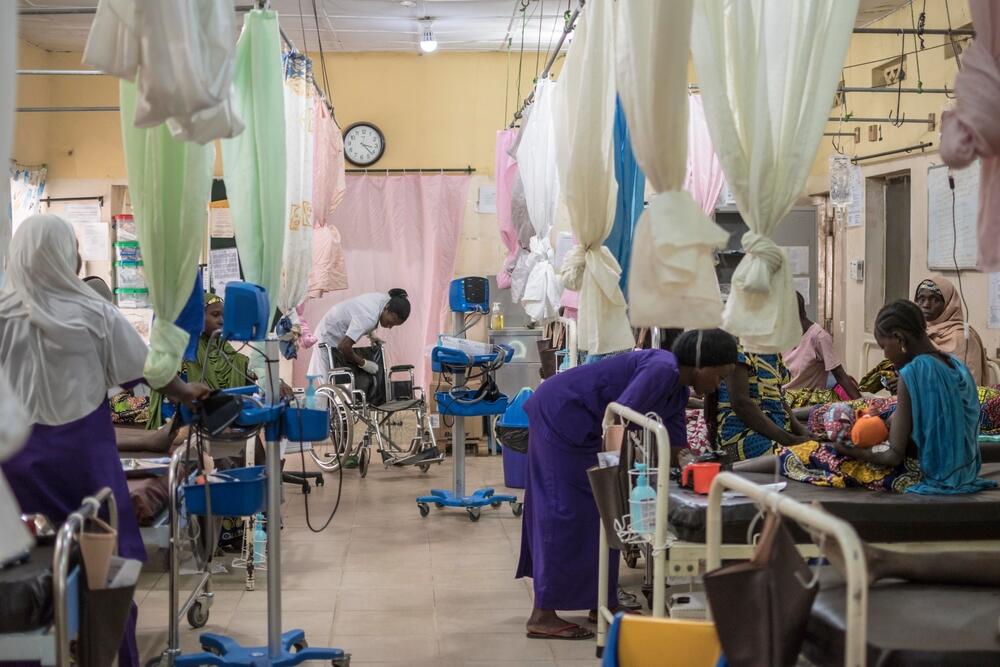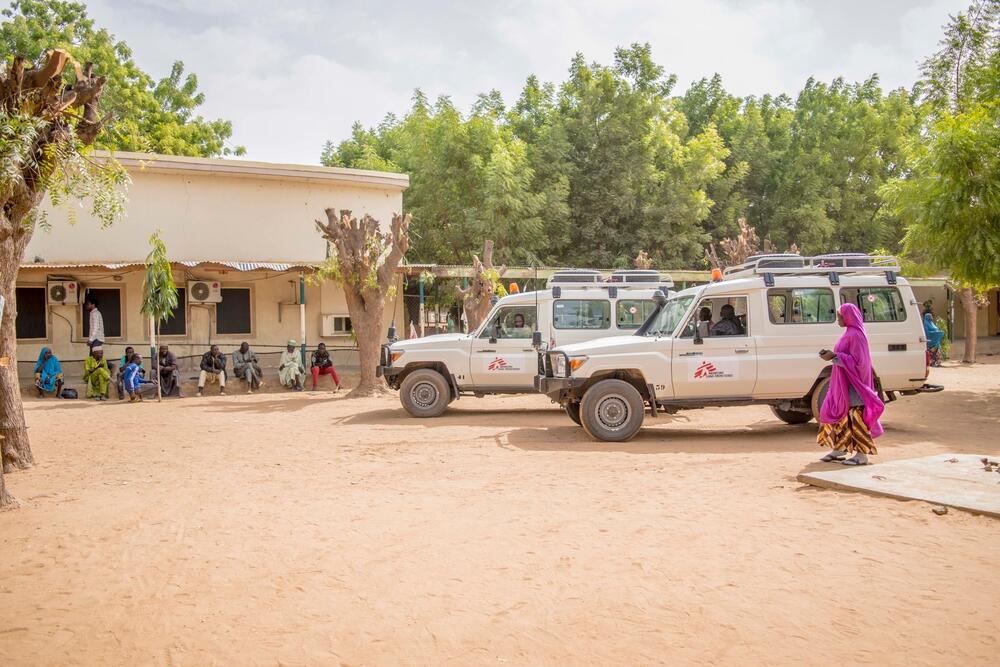Nigeria: "Is my baby going to be alright?"
Midwife Precious Daniel shares her story from an MSF hospital in Jahun, northern Nigeria, where pregnant women often arrive with life-threatening complications.
“Sister, please, will I be okay? Is my baby going to be all right?”
The woman was looking right into my eyes as she spoke. She had been in labour for a long time. Around us, the team was preparing to transfer her urgently to the operating theatre.
I am a midwife at MSF’s obstetric care centre in Jahun, northern Nigeria. The project provides emergency maternity and newborn care, and a service to treat vaginal fistulas – a condition often caused by a lack of medical care for pregnancy complications.
"The woman was in her late 30s. Any baby is precious, but this was her first pregnancy that had progressed this far."
People come from many states outside Jahun; some travel hundreds of kilometres to reach our hospital. We see women coming from near and far with complications like a ruptured uterus, hypertensive disorder or severe anaemia.
When I say severe anaemia, I mean women coming to hospital with iron levels (HB) of 1.5. The normal HB level for a pregnant woman here is 14 or above.
Critical condition
The woman I was caring for that day had travelled a long way to reach us. She’d been in labour at home, but the birth had become obstructed. They had tried to move the baby, but they didn’t have access to specialist medical care and the woman had started bleeding heavily.
When we examined her we saw that the placenta had started detaching early because of the manipulation done at home. This was a medical emergency for both the baby and the mother.
The woman was in her late 30s. Any baby is precious, but this was her first pregnancy that had progressed this far.
“For a long time, I have not given birth,” she told me.
“This is the first time I'm giving birth and they have to rush me from a great distance to bring me here because you people are the ones that are the best here. They said you will take care of my baby. Please tell me, will my baby be okay?”

Help us prepare for the next emergency
Despite the long labour, the baby was still alive. We needed to act quickly.
But, before any major medical procedure we needed to get consent. Sometimes people need to have the urgency of the situation explained before they agree, but this family really understood the danger. Her mum was there, her aunt, her husband.
Before I could even explain that his wife was in a critical condition, her husband said, “I will sign, I will sign, give me the form, we will give the consent.”
Happiness and tears
We rushed this woman to surgery. We kept reassuring her that she should not worry, that everything would be okay, and, by God’s grace, we went into the operating theatre and both this woman and her baby came out alive.
At the end of my shift I went home, but I couldn’t stop thinking about her. I kept remembering her shedding tears, asking, “Will I be okay? Will my baby be okay? Are you sure my baby is still alive? I have heard stories about how you help people. Please help.”
"It is wonderful being part of an organisation where you see cases that are beyond your imagination, but where the team work together in order to assist the patient"
The next day I was on morning duty, so as soon as I could I went and checked on her. She and the baby were doing well.
I was really happy and she was really, really happy. She was praying for everyone involved, praying and saying, “God will bless you”.
A sense of fulfilment
Before I joined the team in Jahun permanently, I was part of the pool of temporary staff who are called to do short contracts whenever there is vacancy that needs filling. Whenever I finished a short contract, I would go back home and share everything I’d learnt with the local community midwives.
I sat these young ladies down. I taught them what I learnt in this hospital. I taught them all about how to manage all these emergency complications, how to assist in obstructive cases, and when to refer a patient to a facility with higher levels of care.
I learnt these broader skills here in Jahun. They were really happy, and those people that I taught, they are still the ones taking care of the community now.
I signed a contract to be a permanent part of the MSF team here in early 2021, and this really has made my dream come true.
Coming to Jahun, I have learnt a lot in terms of dealing with complicated emergencies. What to do, what not to do, how to do it and when to do it. This really has given me a sense of fulfilment as a midwife.
It is wonderful being part of an organisation where you see cases that are beyond your imagination, but where the team work together in order to assist the patient.
When we were able to help that mother with her first baby, even though the situation was so serious, it really made an impression on me. She made me realise that I have achieved what I really want as a midwife.
MSF and maternal health
Many women across the world give birth without medical assistance. This massively increases the risk of complications or death. Ninety-nine percent of these deaths are in low-income countries. The majority are preventable with appropriate care.
Our healthcare teams work together with pregnant women to provide delivery services, emergency obstetric care and post-delivery consultations. We also work with midwives and traditional birth attendants to establish programmes so complicated births can be identified quickly to help prevent maternal deaths.


